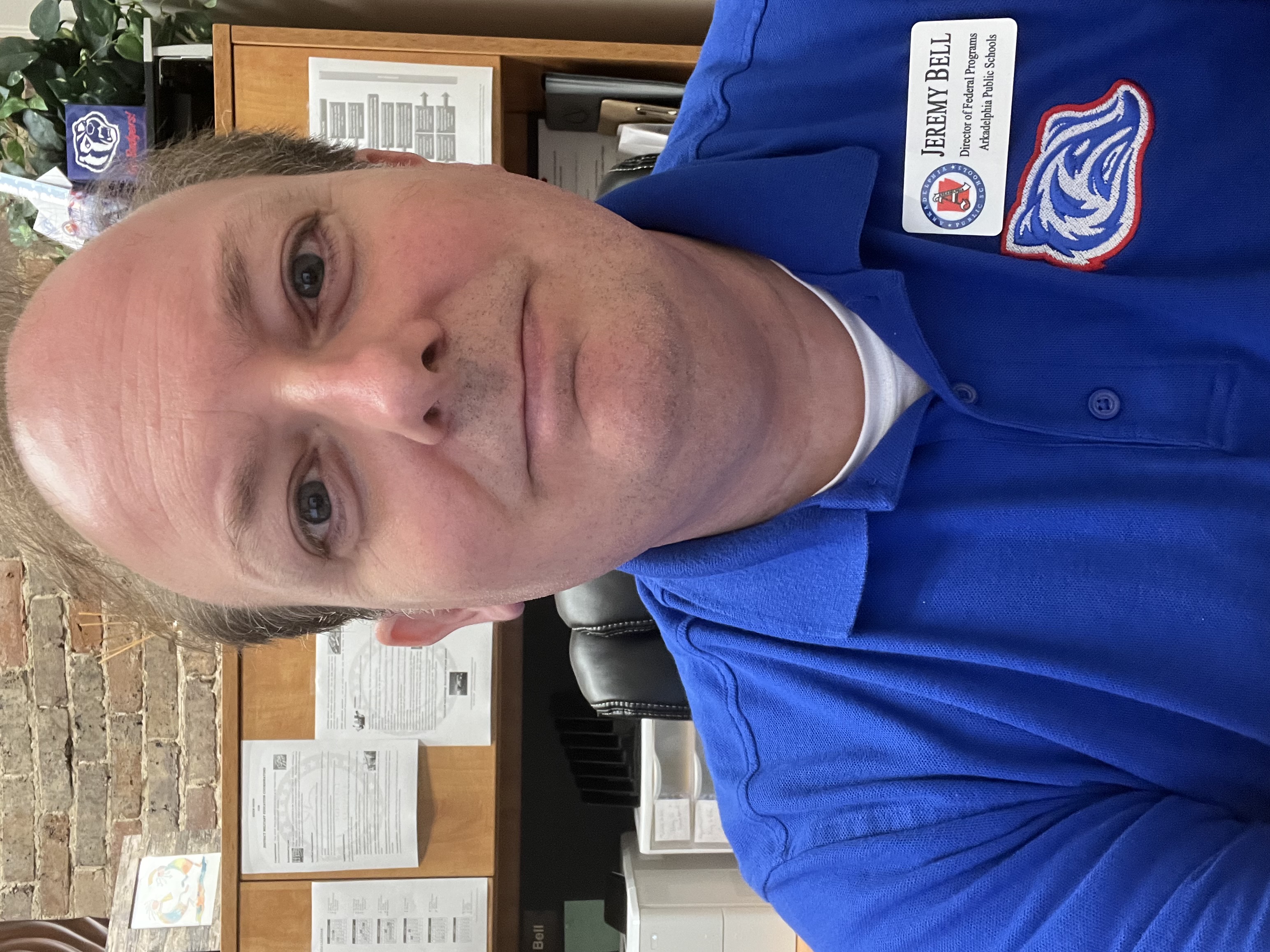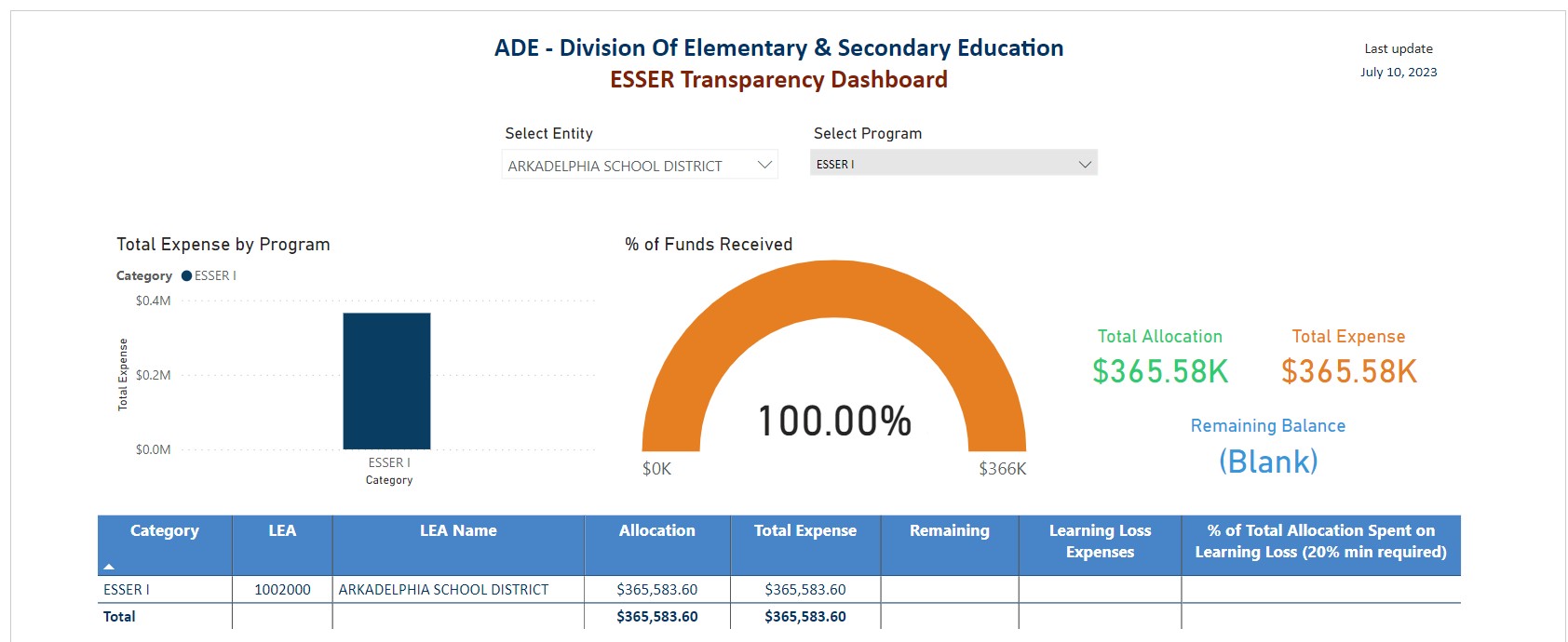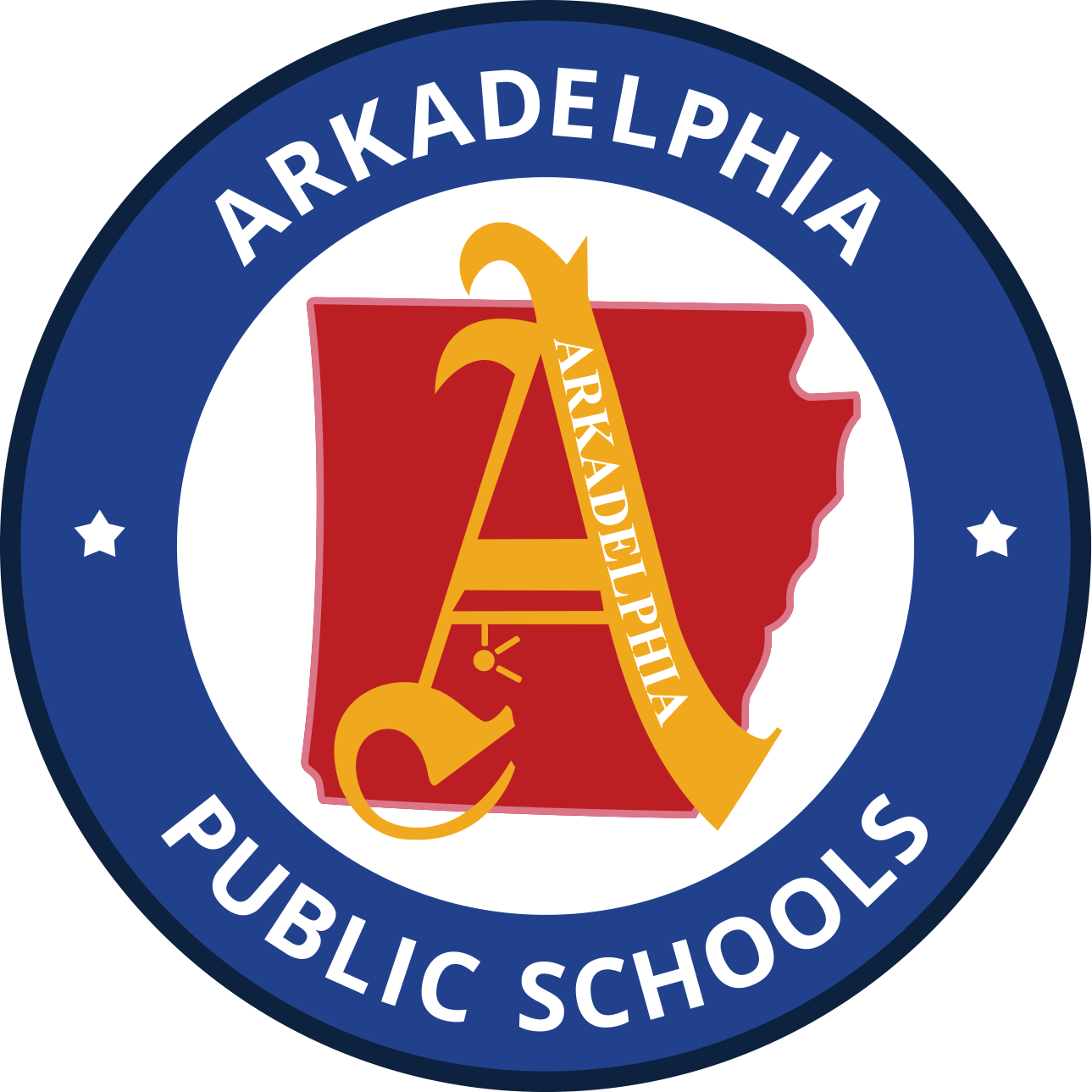Elementary and Secondary School Emergency Relief (ESSER) Fund

William Jeremy Bell
Director of Federal Programs
700 Clinton Street, Dawson Building #3
P. O. Box 10
870-246-5563
william.bell@arkadelphiaschools.org
Welcome and Overview
Welcome to the ESSER section of the website.
Arkansas schools and districts use federal resources in their efforts to improve student achievement, to ensure that students are proficient in meeting our state standards, and to prepare for a successful future.
The Arkadelphia Public School District is a subrecipient of Federal Grant Program funds to supplement and complement the efforts of local school systems, the private sector, public and private nonprofit educational research institutions, community-based organizations, parents and students to improve the quality of education.
District personnel receive technical assistance from ADE:DESE personnel in our efforts to apply best-practices in both fiscal and programmatic matters and to maintain communication efforts not only in the program planning stage but the implementation stage as well.
Elementary and Secondary School Emergency Relief (ESSER) Fund
Elementary and Secondary School Emergency Relief (ESSER) Fund
Congress set aside approximately $13.2 billion of the $30.75 billion allotted to the Education Stabilization Fund through the CARES Act for the Elementary and Secondary School Emergency Relief (ESSER) Fund. The U.S. Department of Education (USED) will award these grants to State educational agencies (SEAs) for the purpose of providing local educational agencies (LEAs), including charter schools that are LEAs, with emergency relief funds to address the impact that COVID-19 has had, and continues to have, on elementary and secondary schools across the nation. Additional information about the ESSER Fund is available at https://oese.ed.gov/offices/education-stabilization-fund/elementary-secondary-school-emergency-relief-fund/.
Arkansas Application for ESSER Funds - Approved May 14, 2020
On May 12, 2020, the Division of Elementary and Secondary Education (DESE) applied for $128,758,638.00 ESSER funds. The submitted application is available here. The application was approved on May 14, 2020 and funds became available on May 14, 2020.
Equitable Services - Revised September 25, 2020
LEAs that receive ESSER funds must provide equitable services to students and teachers in non-public schools located within the LEA. LEAs must engage in timely and meaningful consultation with representatives of non-public schools. Please see Commissioner's Memo COM-21-029.
Highlighted points regarding Equitable Services:
A non-public school is a non-profit elementary or secondary school in operation prior to March 13, 2020.
The LEA is responsible for initiating the consultation process with all non-public schools to which the public LEA has students attending, even if the non-public previously refused services. Funds cannot be sent directly to non-public schools.
Written consultation and equitable services plan for ESSER funds must be uploaded into the ESSER folder in Indistar (see COM-21-029).
Questions or complaints should be sent to the State Ombudsman. Information about the Ombudsman is available at http://dese.ade.arkansas.gov/divisions/public-school-accountability/federal-programs/ombudsman-federal-programs-equitable-services.
Maintenance of Effort
As a condition of receiving ESSER funds, states must maintain support for elementary and secondary education in FY2020 and FY2021 at least at the levels of support that is the average of such state's support for elementary and secondary education in the three fiscal years preceding March 27, 2020. Information about maintenance of effort is posted on the DESE website at http://dese.ade.arkansas.gov/divisions/fiscal-and-administrative-services/lea-federal-funding/maintenance-of-effort.
Continue to Compensate Employees
To the greatest extent practicable, recipients of ESSER funds must continue to pay their employees and contractors during COVID-19 disruptions or closures. More guidance is available at https://www2.ed.gov/documents/coronavirus/factsheet-fiscal-questions.pdf
Technical Assistance
DESE will provide technical assistance to LEAs through Commissioner's Memos, webinars, and upon request. General technical assistance will be posted on this webpage. Please send specific requests to ade.esser@arkansas.gov.
District Implementation
Currently, APSD expended all of the funds from this area per state and federal guidelines.
This is visible on the ADE:DESE ESSER Transparency Dashboard (screenshot below)...

Public comments can be submitted using the APSD Federal Programs Engagement Survey.
Personnel, students, their families, and other interested parties are invited to ask questions, to provide feedback, and to contribute to the process as part of our consultation with stakeholders. Therefore, we invite you to use our APSD Federal Programs Engagement Survey (feel free to provide feedback for this and any of the pertinent sections).
District Ready for Learning (RfL) Committee
The APSD Ready for Learning (RfL) Committee consists of APSD personnel, parents, and community members.
This committee and its subcommittees will evolve over time based on current needs.
Public comments can be submitted using the APSD Federal Programs Engagement Survey.
Personnel, students, their families, and other interested parties are invited to ask questions, to provide feedback, and to contribute to the process as part of our consultation with stakeholders. Therefore, we invite you to use our APSD Federal Programs Engagement Survey (feel free to provide feedback for this and any of the pertinent sections).
Parent's Right to Know
You have a right to request information regarding the professional qualifications of the classroom staff working with your child.
Our district or school will be able to provide you with the following information regarding the qualifications of your child’s teacher(s):
Whether the teacher meets the state qualifications and licensing criteria for the grades and subjects that he or she teaches.
Whether the teacher is teaching under emergency or provisional status because of special circumstances.
Whether the teacher has any advanced degrees and the field of discipline of the teacher’s certification or degree.
If at any time your student has been taught for four (4) or more consecutive weeks by a teacher(s) that is not highly qualified, then you will be notified by the school.
You also have the right to request information regarding the qualifications of the paraprofessional(s) assisting your child’s teacher(s). If your child is receiving Title I, Part A services from a paraprofessional, then our district or school is able to provide you with the following information:
Whether the paraprofessional has completed at least two years of study at an institution of higher education.
Whether the paraprofessional has completed an associate’s degree (or higher).
Whether the paraprofessional has met a rigorous standard of quality through our state’s certification procedure for determining the quality of paraprofessional staff.
Whether the paraprofessional has: (a) the knowledge of and ability to assist in instructing reading, writing, and mathematics or (b) the knowledge of and the ability to assist in learning activities, such as homework, reading readiness, writing, mathematics, and other support as appropriate.
To request this information, please contact the office by phone during school hours:
Peake Elementary School at 870-246-2361
Goza Middle School at 870-246-4291
Arkadelphia High School at 870-246-7373
This letter is available annually on the district website (here).
Disabled Parents
Disabled parents have a right to ask for auxiliary aids and services to afford them an equal opportunity to participate in and to enjoy the benefits of a Title I, Part A Programs.
Complaint Procedures
The Elementary and Secondary Education Act of 1965 (ESEA) requires the state educational agency (SEA) to investigate any complaint provided to the SEA.
Any individual, organization or agency (complainant) may file a complaint with the Arkansas Department of Education if that individual, organization or agency believes and alleges that a local educational agency, the state educational agency, or an agency or consortium of agencies is violating a federal statute or regulation that applies to a program under the ESEA. The complaint must allege a violation that occurred not more than one (1) year prior to the date that the complaint is received, unless a longer period is reasonable because the violation is considered systemic or ongoing.
For more information, please refer to:
Feedback
Please complete any surveys for any campus and for the district
APSD Federal Programs Engagement Survey (feel free to provide feedback for any of the pertinent sections)
Please consider volunteering by campus
Each campus trains its volunteers for the specific roles and/or tasks
Please let us know how we can collaborate with you more effectively

